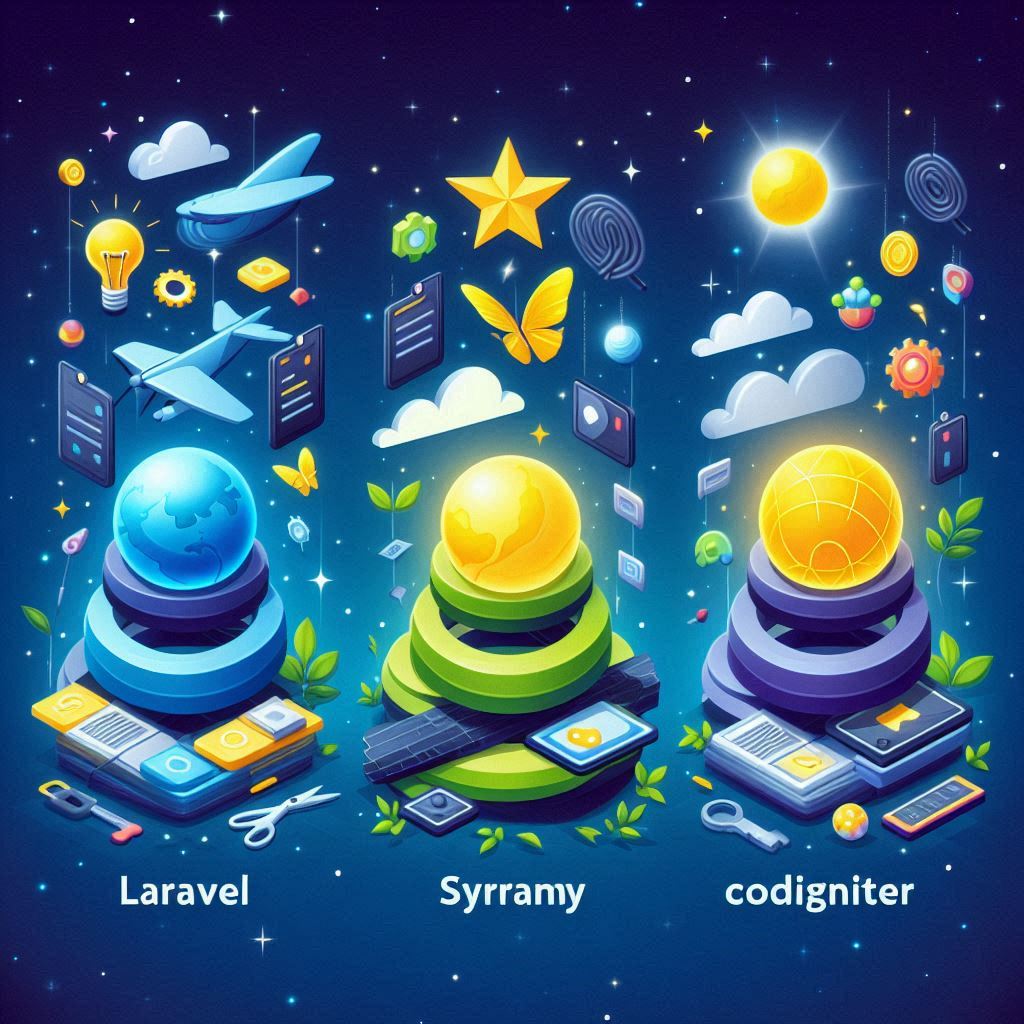Php frameworks are essential tools for building robust and scalable web applications. In this article, we’ll explore three popular PHP frameworks – Laravel, Symfony, and CodeIgniter – and compare their features, performance, and use cases.
Laravel
Laravel is a modern PHP framework known for its elegant syntax and expressive features. It provides built-in tools for routing, authentication, and database management, making it ideal for developing complex web applications quickly. Laravel’s extensive ecosystem, including packages like Eloquent ORM and Blade templating engine, simplifies common tasks and promotes code reusability.
Key Features:
- Elegant syntax
- Powerful ORM (Eloquent)
- Blade templating engine
- Artisan command-line interface
- Robust authentication system
- Comprehensive documentation
- Active community support
Symfony
Symfony is a high-performance PHP framework designed for enterprise-level applications. It follows the Model-View-Controller (MVC) architectural pattern and offers a set of reusable components that can be used independently or combined to build complex applications. Symfony’s flexibility, scalability, and extensive documentation make it a popular choice for large-scale projects.
Key Features:
- Modular architecture
- Flexibility and extensibility
- Symfony Flex for easy project setup
- Twig templating engine
- Doctrine ORM for database management
- Debugging and profiling tools
- Long-term support (LTS) releases
CodeIgniter
CodeIgniter is a lightweight PHP framework known for its simplicity and performance. It’s well-suited for small to medium-sized projects where speed and ease of use are priorities. CodeIgniter’s small footprint, straightforward configuration, and minimal dependencies make it easy to learn and deploy. However, its lack of built-in features compared to Laravel and Symfony may require additional libraries or extensions for certain functionalities.
Key Features:
- Lightweight and fast
- Small footprint
- Simple and intuitive syntax
- Active Record implementation for database interaction
- Flexible routing system
- Excellent documentation
- Large community of developers
Choosing the Right Framework

When choosing a PHP framework for your project, consider factors such as project requirements, developer experience, community support, and scalability. Laravel is an excellent choice for rapid development of modern web applications with robust features. Symfony offers flexibility and scalability for enterprise-level projects with complex requirements. CodeIgniter is ideal for smaller projects where simplicity and performance are prioritized.
Conclusion
Laravel, Symfony, and CodeIgniter are three of the most popular PHP frameworks, each offering unique features and advantages. By understanding their strengths and use cases, you can choose the framework that best suits your project needs and development style. Whether you’re building a small website or a large-scale enterprise application, there’s a PHP framework that’s right for you.
FAQS


